|
Tu 14.00-17.15 h
S 15
4 SWS Course
Prüfungsleistung: Presentation and Assignment
Paper (12 pages)
MIKKELLER 10
20 30
CULINARY TOURISM - BACKGROUND
Let's start with - Wikipedia:
https://en.wikipedia.org/wiki/Culinary_tourism
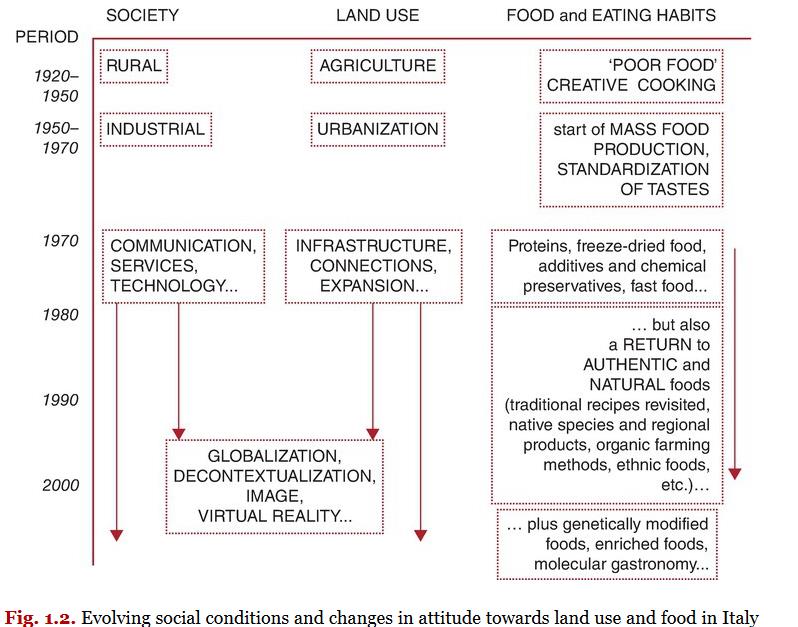
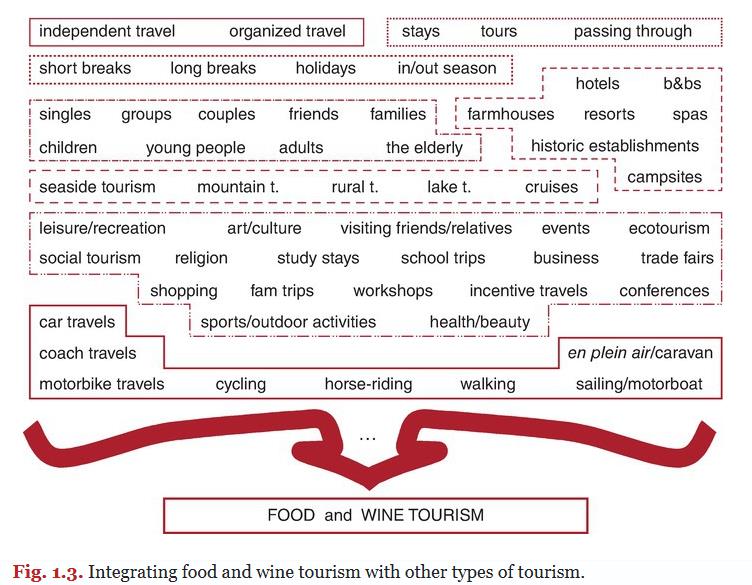
Croce &
Perri: Food and Wine Tourism, 2nd Edition. CABI 2017
Food Tourism historical development:
Food as local attraction
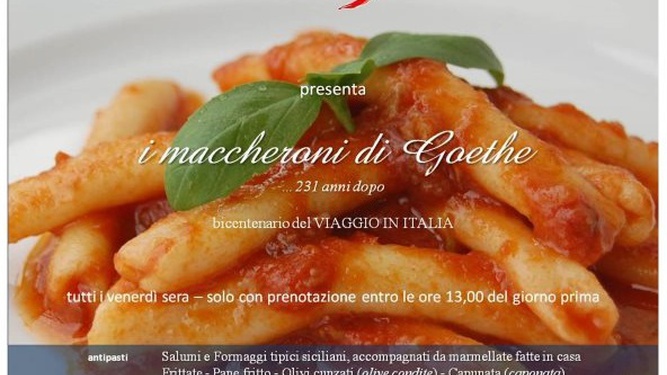
"Vom Essen und Trinken hierzuland hab' ich
noch nichts gesagt, und doch ist es kein kleiner Artikel. Die
Gartenfrüchte sind herrlich, besonders der Salat von Zartheit und
Geschmack wie eine Milch; man begreift, warum ihn die Alten Lactuca
genannt haben. Das Öl, der Wein alles sehr gut, und sie könnten noch
besser sein, wenn man auf ihre Bereitung mehr Sorgfalt verwendete.
Fische die besten, zartesten. Auch haben wir diese Zeit her sehr gut
Rindfleisch gehabt, ob man es gleich sonst nicht loben will."
Goethe, Italienische Reise
-> Glocalized food
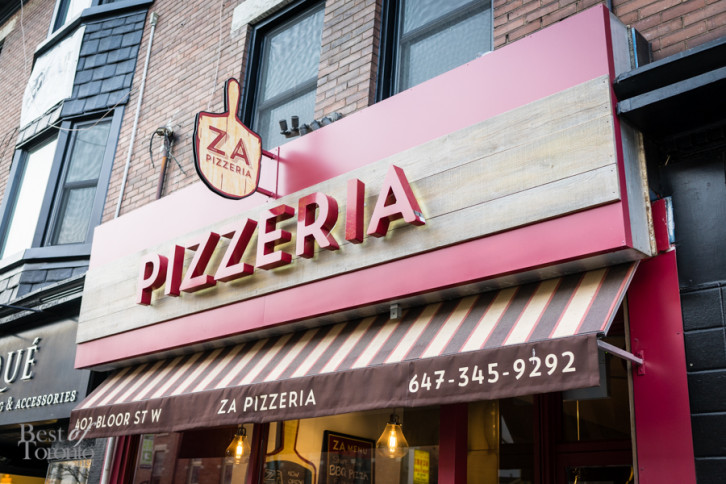
-> Food as local attraction
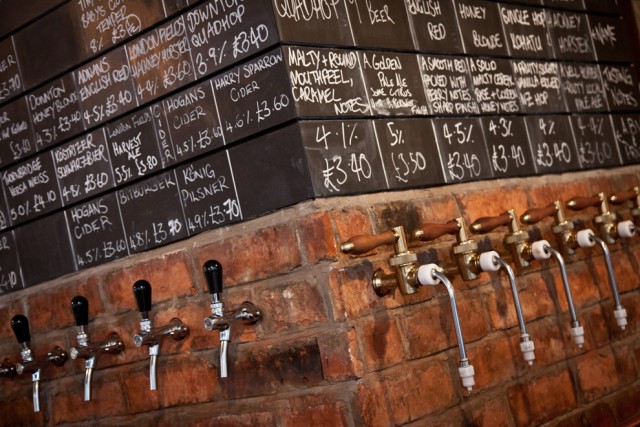
Tourism postmodern development:
Sightseeing -> Experience -> Emotion
Food Tourism - Gastronomy Tourism - Culinary
Tourism
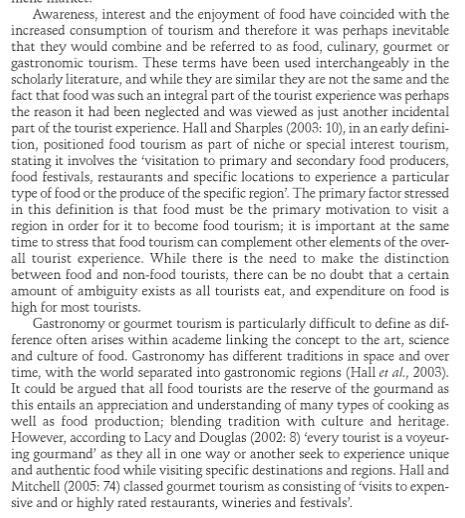
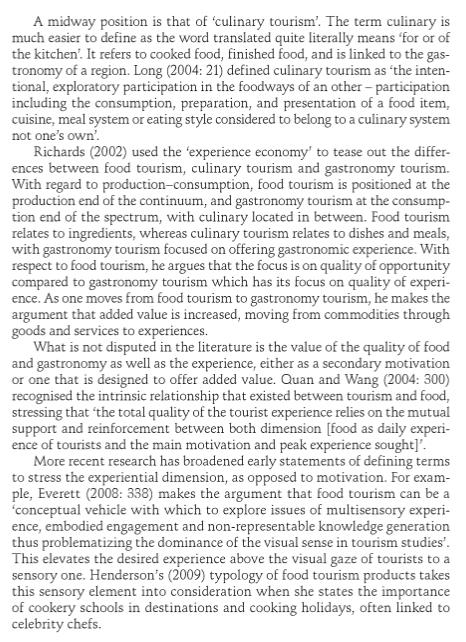
Stephen Boyd: The Past and Present of Food
Tourism, in: Yeoman, McMahon-Beattie 2015, p. 11-23
Culinary tourism has been defined as “the
pursuit of unique and memorable eating and drinking experiences.”
By combining
travel with these edible experiences,
culinary tourism
offers both locals and tourists alike an authentic taste of place.
Culinary tourism has emerged as a central
facet to any tourist experience. It encompasses cultural practices,
the landscape, the sea, local history, values and cultural heritage.
Food serves to connect us with the land, our heritage and the people
around us. It is a diverse and dynamic channel for sharing stories,
forming relationships and building communities. By combining travel
with these edible experiences, food tourism offers both locals and
tourists alike an authentic “taste of place”.
SOURCE: UNWTO
Second Report on Gastronomy Tourism
Culinary Tourism
Gastronomy_Report UNWTO
|







